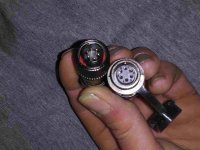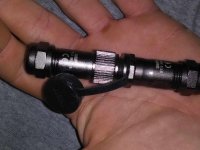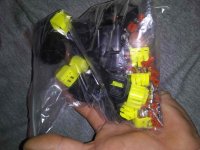spinningmagnets said:
My disconnect and reconnect are so rare, I've just gone to hard-wiring everything
I have to agree with John in CR on this one, If there is any way possible to do this, hard-wired and using marine heat-shrink (made for boats) is ideal.
What if you do it often, and not rarely? Better get good at it, doesn't practice make perfect? I guess you dont plan on doing it twice, or upgrading, or modifying the harness for other auxiliary.
Maintenance disassembly is not a thing for you guys? Cause you are so good of course. Lol. How about the non-electrical savy person that might inherit your bike when you retire it and move to the next? Scewface him, laf.
Are we not pushing the envelope ( and the inevitable failures that come with such determination)? Or do we just build with proven designs that are not new?
Isnt there a chance of a manufacture defect showing over time that may need disassembly? I guess you never had this problem, in a production run.
Honestly think we should shield more, but thats another discussion. Such diversity in installation is prone to error.
Regardless, I think they have their worth in the field of design.. connectors, and teh ones I like are linked above. Mainy in ease of assy and reliability/simplicity in maintenance.. Hey, if you are a 10$/hr mechanic itt wont matter, but if you are a 100$/hr mechanic, your customer might want you to save some time through reliable innovation here or there. Just maybe dontcha think?
Hey, I guess if you dont do it alot, know how to clean solder from wire for time tested contact, spend on reliable component, dont plan on innovation, or maintaining the machine ( PMCS v. Overhaul), dont pay for the time, or your time is not worth much,... there is not a problem.
I do it like the auto manuf do... No solder, crimp, nice replaceable if damaged positive interlocking connectors, weatherproofed, ports for diagnosis, of the involved system(s).... and whatnot. Geared toward mass production and less user error IMO, by the nature of the assembly. Ease of use for the user, maintainer, and seller.
Solder away, if that is what you found reliable. I found soldering signals, and power electronics, not very reliable when doing alot of high strung fuel injection projects on vehicles. The OEM would do it if it was good for anything, IMO.
 )
)











